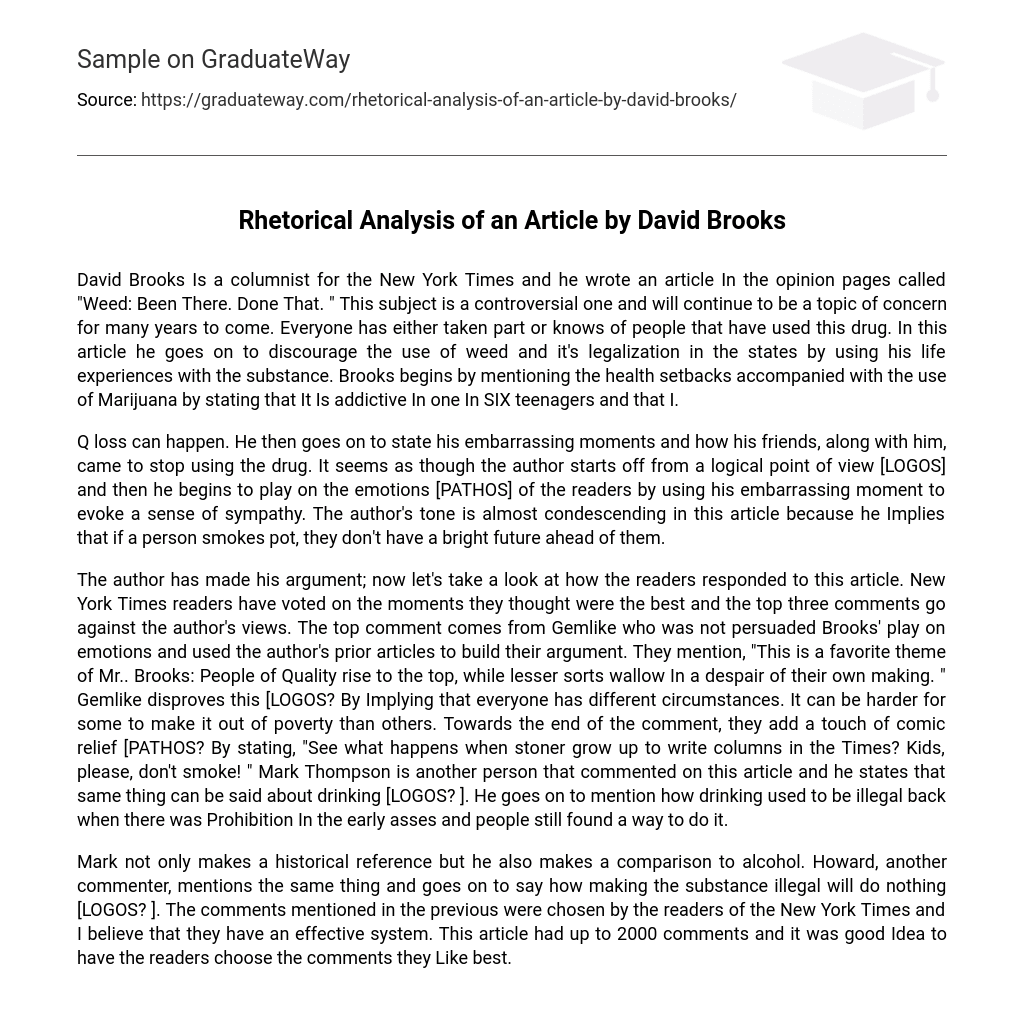David Brooks Is a columnist for the New York Times and he wrote an article In the opinion pages called “Weed: Been There. Done That. ” This subject is a controversial one and will continue to be a topic of concern for many years to come. Everyone has either taken part or knows of people that have used this drug. In this article he goes on to discourage the use of weed and it’s legalization in the states by using his life experiences with the substance. Brooks begins by mentioning the health setbacks accompanied with the use of Marijuana by stating that It Is addictive In one In SIX teenagers and that I.
Q loss can happen. He then goes on to state his embarrassing moments and how his friends, along with him, came to stop using the drug. It seems as though the author starts off from a logical point of view [LOGOS] and then he begins to play on the emotions [PATHOS] of the readers by using his embarrassing moment to evoke a sense of sympathy. The author’s tone is almost condescending in this article because he Implies that if a person smokes pot, they don’t have a bright future ahead of them.
The author has made his argument; now let’s take a look at how the readers responded to this article. New York Times readers have voted on the moments they thought were the best and the top three comments go against the author’s views. The top comment comes from Gemlike who was not persuaded Brooks’ play on emotions and used the author’s prior articles to build their argument. They mention, “This is a favorite theme of Mr.. Brooks: People of Quality rise to the top, while lesser sorts wallow In a despair of their own making. ” Gemlike disproves this [LOGOS? By Implying that everyone has different circumstances. It can be harder for some to make it out of poverty than others. Towards the end of the comment, they add a touch of comic relief [PATHOS? By stating, “See what happens when stoner grow up to write columns in the Times? Kids, please, don’t smoke! ” Mark Thompson is another person that commented on this article and he states that same thing can be said about drinking [LOGOS? ]. He goes on to mention how drinking used to be illegal back when there was Prohibition In the early asses and people still found a way to do it.
Mark not only makes a historical reference but he also makes a comparison to alcohol. Howard, another commenter, mentions the same thing and goes on to say how making the substance illegal will do nothing [LOGOS? ]. The comments mentioned in the previous were chosen by the readers of the New York Times and I believe that they have an effective system. This article had up to 2000 comments and it was good Idea to have the readers choose the comments they Like best.





